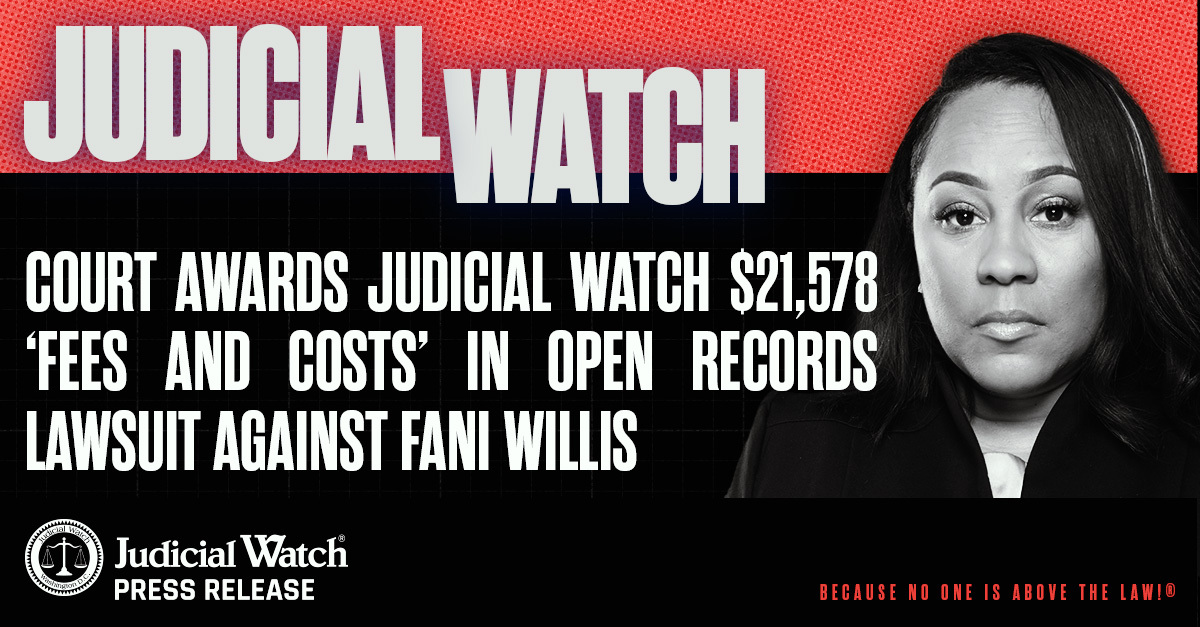

Judicial Watch and Allied Educational Foundation File Supreme Court Amici Brief against Race-Based Admissions Policies at UT-Austin
(Washington, DC) – Judicial Watch announced today it joined with the Allied Educational Foundation (AEF) to file an amici curiae brief with the U.S. Supreme Court that argues that raced-based admissions policies are irrational, destructive and are based on illegitimate racial theories that have no basis in biology.
The Judicial Watch and AEF brief was filed on September 10, 2015, in support of Abigail Noel Fisher, who is asking the court to overturn a U.S. Court of Appeals for the Fifth Circuit decision that allows the continued practice of giving applicants admission preferences, based upon race and ethnicity, to the University of Texas at Austin (UT).
The new amici brief states:
The decision by the U.S. Court of Appeals for the Fifth Circuit raises important issues of constitutional law that should be addressed by this Court. In particular, amici are concerned that the Fifth Circuit’s ruling, if allowed to stand, will serve to increase racial polarization and resentment in this country, needlessly perpetuating a destructive focus on “racial” issues and prolonging the misconception that race is a valid or legitimate concept. Amici argue that, ultimately, the only mention of race in the law should be its prohibition. Any divergence from this principle must be extraordinarily narrow, and for remedial purposes only.
Judicial Watch and AEF cite the American Anthropological Association’s position that racial categories only perpetuate misinformation and irrational beliefs about others:
“Race” thus evolved as a worldview, a body of prejudgments that distorts our ideas about human differences and group behavior. Racial beliefs constitute myths about the diversity in the human species and about the abilities and behavior of people homogenized into “racial” categories.
Judicial Watch and AEF make the case that the UT’s and the federal government’s use of racial identification is absurd, and can never be “narrowly tailored” under the constitution:
UT makes no effort whatsoever to define the term “Asian,” which just as commonly refers to the four billion human beings who inhabit the largest and most populous continent on Earth as it does to a single “race” of people. It lumps together the two most populous countries on the planet, China and India, each of which has more than a billion people and a multitude of languages, cultures, and religions. It is unclear whether UT’s use of the term “Asian” includes applicants who are or whose ancestors were of full or partial Near or Middle Eastern origin, including persons of full or partial Arab, Armenian, Azerbaijani, Georgian, Kurdish, Persian, or Turkish descent, or whether such applicants are to be considered “White.”
The UT policy at issue allows applicants to self-identify their race, which is also a flawed process to distinguish applicants. The brief cites to the case of Rachel Dolezal, the NAACP Spokane Chapter president who self-identified as “Black” despite apparently having only “White” heritage:
Answering the question of whether Rachel Dolezal would qualify as “black” under affirmative action policies (and if not, why not) further exposes the confusion that reliance on “self-identification” can produce.
The amici brief urges the Supreme Court to finally excise racial considerations from government decision making:
Ultimately, the only way to treat the illegitimate concept of race is to absolutely prohibit its use as a basis for government decisions affecting individuals or groups of individuals. Conveniently, such a prohibition is precisely what the Constitution already requires.
In 2008, Abigail Fisher, a Texas resident who was denied admission to UT based upon these racial policies, and her former co-plaintiff, Rachel Multer Michalewicz, filed suit against UT, alleging that the university had violated the Equal Protection Clause of the 14th Amendment. In January 2011, after the U.S. Court of Appeals for the Fifth Circuit ruled in favor of UT, Fisher appealed the decision to the U.S. Supreme Court. In a June 2013, 7-1 ruling, the high court vacated the Fifth Circuit’s ruling and ordered it to review the case again.
Despite the Supreme Court’s ruling, however, in July 2014, a Fifth Circuit three-judge panel again upheld the UT race-based admissions policies in a 2-1 decision that suggested that UT (and other colleges and universities) “may use race and ethnicity not only in pursuit of an undefined ‘critical mass’ of diversity, but also ‘in its search for holistic diversity.’”
In November 2014, the full Fifth Circuit declined to rehear the case, prompting Fisher to petition the Supreme Court in February 2015. The Supreme Court granted cert. and is now considering the merits of Fisher’s constitutional claim.
(This is the fourth amici brief filed by Judicial Watch and AEF in the Fisher civil rights litigation. Prior briefs are available here, here, and here.)
“The Fisher case is an opportunity for the Supreme Court to finally put an end to racist affirmative action policies,” stated Judicial Watch president Tom Fitton. “No government benefits should be doled according to backwards racial theories that, right now, are causing violence and death.”
The Allied Educational Foundation, Judicial Watch’s partner in the amici brief, is a charitable and educational foundation dedicated to improving quality of life through education. In furtherance of that goal, the Foundation has engaged in a number of projects which include, but are not limited to, educational and health conferences domestically and abroad. AEF has frequently partnered with Judicial Watch to fight government and judicial corruption, and to promote a return to ethics and morality in the nation’s public life.
###















